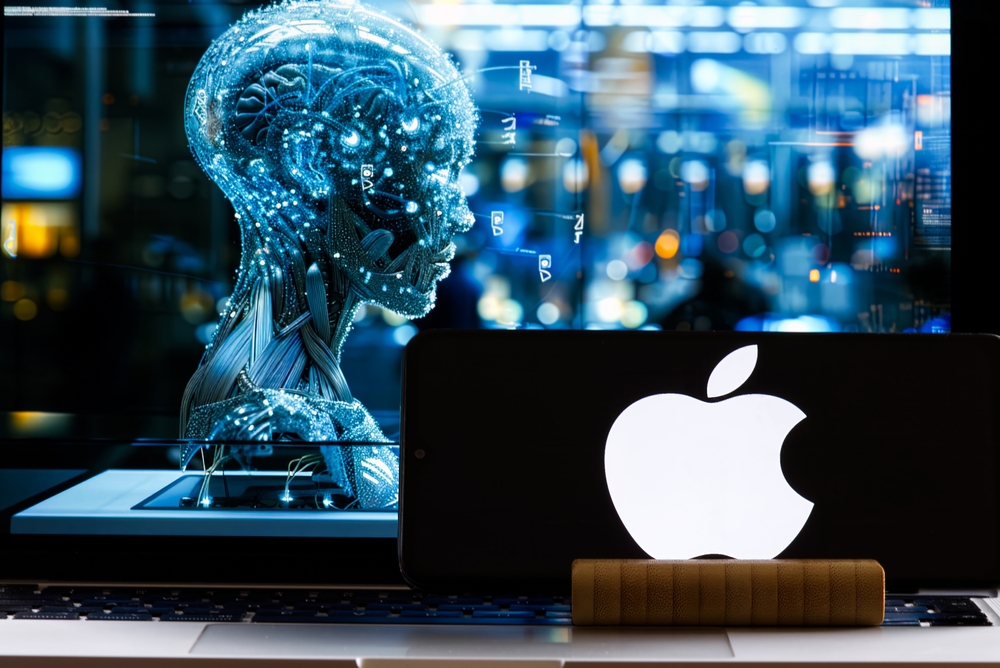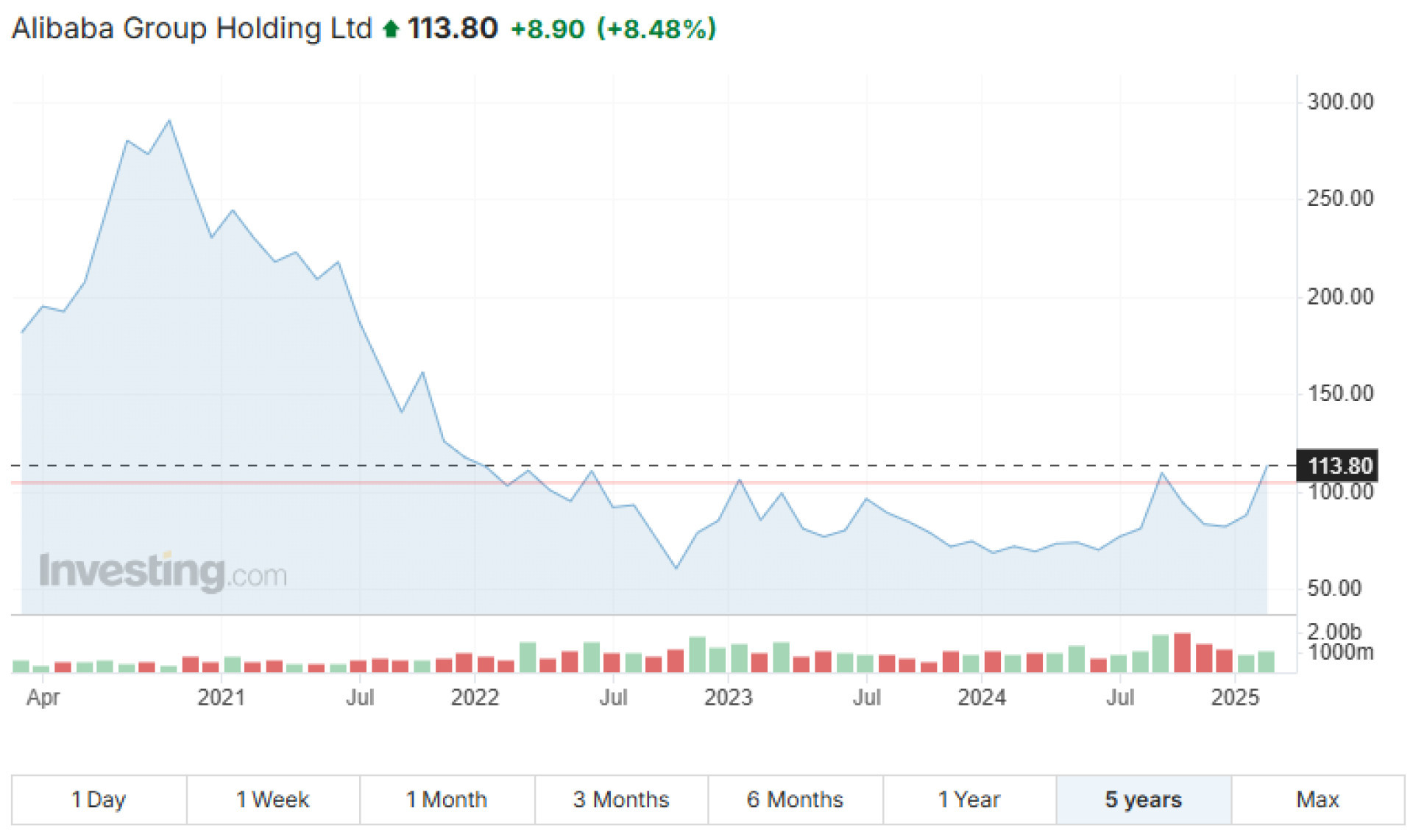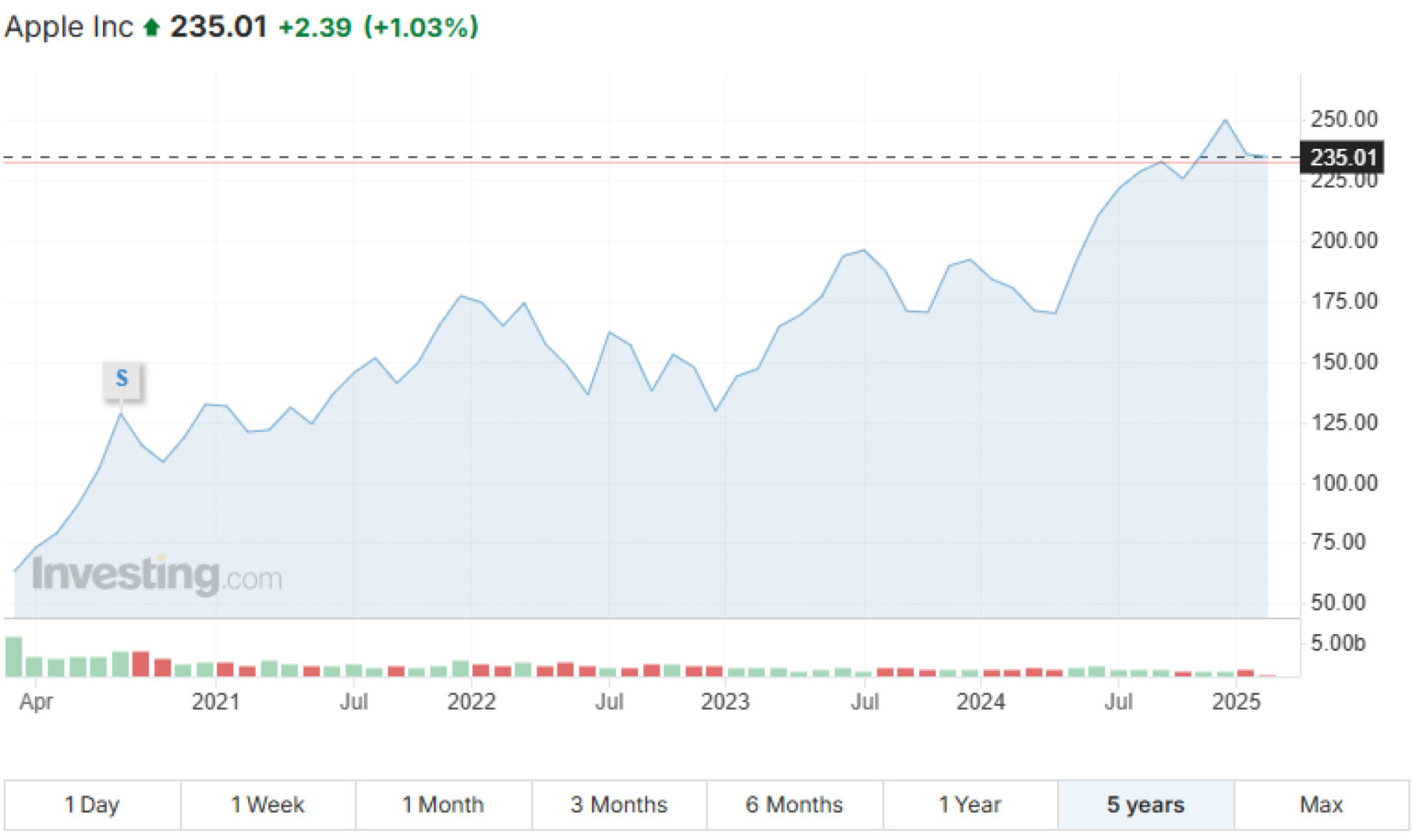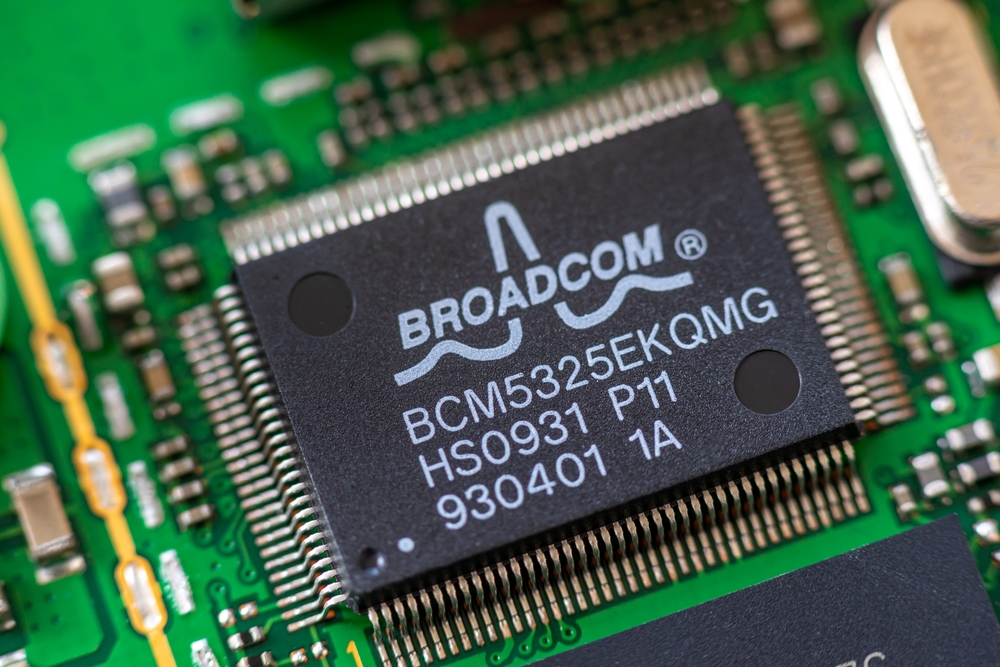Artificial intelligence thanks to Alibaba
In a collaboration first reported by The Information, the giants want to bring artificial intelligence services to Chinese iPhone consumers. The latter is only available in the US for now. Alibaba's cloud division Tongyi Qianwen's big language model has been used in creating the features, which will allow Apple's platform to better handle the demands of Chinese users. The product has already been submitted to regulators, a necessary step before the official launch of new AI models in China. If approved, the services should be available as early as April. The Californian giant initially considered Chinese competitors Baidu, Tencent, ByteDance and Deepseek. Baidu, however, failed to meet the expectations and standards of the iPhones' performance and capabilities or did not have enough resources, as was the case with DeepSeek. Alibaba's vast network of data on Chinese consumers also weighed in the decision, according to The Information, which will also make AI-based personalization easier.
Challenges Apple needs to overcome
The unavailability of Apple's Intelligence platform in mainland China is significantly impacting the company's market share to the benefit of growing competition. One such competitor is Huawei, which, around the time Apple released new iPhones last fall, launched the Mate XT, which has similar AI features. However, China's AI market is significantly shaped by strict government regulations. As mentioned, all language models used commercially in the country must receive government approval. Third-party integration is also an issue, as the Siri voice assistant uses OpenAI's ChatGPT when browsing the web, which is banned in China. Therefore, it is important for Apple to work with local technology companies if it wants to succeed in the local market. Chinese government regulations also include strict content censorship and privacy protections. Apple has long touted its commitment to user privacy, but China requires iCloud data to be stored on local servers managed by a third party, raising questions about how the data would be handled.
The lack of AI has had an impact on sales
For Apple, the shift comes after months of uncertainty over artificial intelligence, which has taken a toll on sales of its smartphones, especially during the usually strong holiday quarter. According to technology analyst firm Canalys, the giant faced a challenging quarter, with iPhone shipments down 25% year-on-year in the final quarter of 2024. This happened even though it maintained its leadership position in the premium segment. The company was pressured by intense competition from domestic brands such as Huawei and vivo, which have gained larger market shares. The company shipped 13.1 million iPhones in China during the period, taking advantage of exchange programs, interest-free installment programs and seasonal promotions. According to Apple's earnings results for the first quarter of fiscal year 2025, sales in China fell 11% to US$18.51 billion. Meanwhile, the company saw a similarly high decline in the same period a year earlier. CEO Tim Cook attributed part of the decline to lower inventories and the delayed rollout of Apple Intelligence in China. Worldwide, total revenue rose 4% to US$124.3 billion in the period. The company's net profit increased 7.1% to US$36.33 billion and the company maintained a record high gross margin of 46.9%, demonstrating resilience despite the challenges in the Chinese market.
Alibaba grew, Apple just a little
Investors reacted positively to the news of the collaboration, which was most reflected in the shares of the Chinese giant. Alibaba surged nearly 8.5% to HK$113.80 (US$14.61) on the Hong Kong stock exchange on Feb. 12, 2025, taking it to the highs of September 2024. Still, the stock was down from a 5-year view. Shares on the NYSE moved similarly, but with smaller gains.* Apple shares did not get such a positive response, trading only about 1% higher on the day at US$234.87. From a long-term perspective, the stock was at a high level, a couple of dollars away from all-time highs.*
Source: investing.com*
Conclusion
Apple's collaboration with Alibaba is not only a technological step forward, but also a necessary strategy to stay competitive in China. While Apple is committed to introducing AI-powered features to Chinese users, adapting to the country's regulatory and technological environment will require a gradual and carefully managed approach. If successful, this move could strengthen the California company's position in one of the world's most important markets.[1]
* Past data is not a guarantee of future returns.
[1] Forward-looking statements represent assumptions and current expectations that may not be accurate or are based on the current economic environment, which may change. These statements are not guarantees of future performance. Forward-looking statements, by their nature, involve risk and uncertainty because they relate to future events and circumstances that cannot be predicted and actual developments and results may differ materially from those expressed or implied by any forward-looking statements.
Warning! This marketing material is not and should not be construed as investment advice. Past data is not a guarantee of future returns. Investing in foreign currency may affect returns due to fluctuations. All securities transactions may result in both gains and losses. Forward-looking statements represent assumptions and current expectations that may not be accurate or are based on the current economic environment, which may change. These statements are not guarantees of future performance. InvestingFox is a trademark of CAPITAL MARKETS, o.c.p., a.s. regulated by the National Bank of Slovakia.
Sources:
https://www.cnbc.com/2024/06/20/apple-ai-push-faces-big-challenges-in-china.html
https://www.canalys.com/newsroom/china-smartphone-market-q4-2024
https://www.cnbc.com/2025/01/30/apple-aapl-q1-earnings-2025.html
 English
English
 Slovak
Slovak
 Czech
Czech
 Hungarian
Hungarian
 Italiano
Italiano
 Polish
Polish







